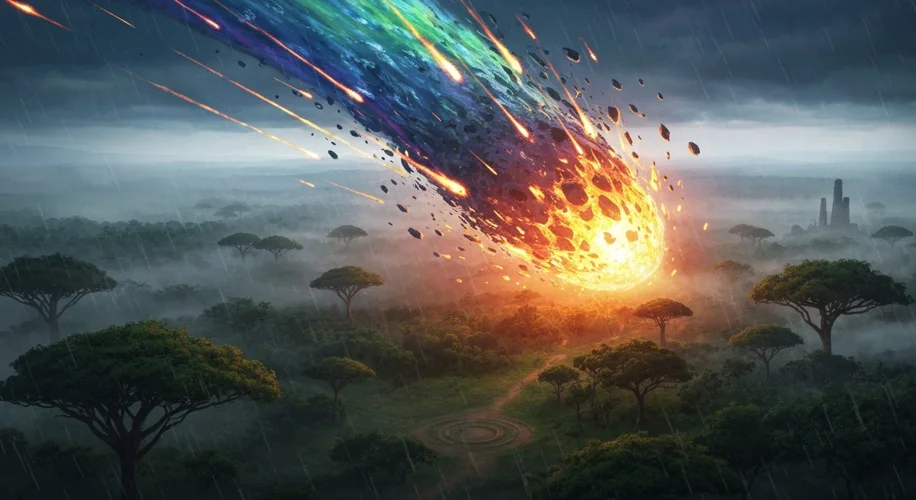Did you know that over 12,000 years ago, a cosmic event might have drastically changed our planet and potentially wiped out an advanced civilization? It’s a mind-boggling idea that scientists are exploring, and the evidence is quite compelling.
Imagine a time when Earth’s climate shifted dramatically, becoming much colder. This wasn’t just a mild change; it was a significant event that scientists believe could have been triggered by massive comet trails impacting our planet. We’re talking about a period around 12,800 years ago, a time that aligns with the end of the last Ice Age.
The idea is that a swarm of comets or a large comet broke apart, sending debris hurtling towards Earth. These impacts, or even the atmospheric dust and aerosols left behind, could have plunged the planet into a prolonged period of darkness and cold. Think of it like a mini-ice age, which would have made survival incredibly difficult for any large mammals, including humans and the megafauna of the time.
What evidence supports this theory? One significant piece of the puzzle comes from the Arctic. Researchers have found layers of mud that contain unusual amounts of metallic beads. These beads are rich in platinum, a rare element on Earth but more common in asteroids and comets. The presence of these materials in specific geological layers, dating back to that ancient period, suggests an extraterrestrial impact or a massive influx of cosmic material.
Furthermore, evidence of widespread wildfires around the same time has been found in various locations globally. These fires could have been ignited by the heat of atmospheric entry from comet fragments. The resulting smoke and soot would have further contributed to blocking sunlight, exacerbating the cooling effect.
This theory, often referred to as the Younger Dryas Impact Hypothesis, suggests that such an event could have caused widespread ecological collapse. The abrupt climate change would have disrupted food sources and made many regions uninhabitable. If an advanced civilization existed at that time, such a cataclysmic event could certainly explain their disappearance. We often think of ancient civilizations as primitive, but some researchers theorize that there may have been societies with advanced knowledge and capabilities that have since been lost to history.
As a scientist who studies climate, I find this line of inquiry fascinating. It highlights how vulnerable life on Earth can be to cosmic events. While the exact details are still being debated and researched, the potential for a cosmic explosion to reshape our planet’s history and impact civilization is a powerful reminder of our place in the universe. It underscores the dynamic nature of our planet and the constant interplay between Earth and the cosmos.

